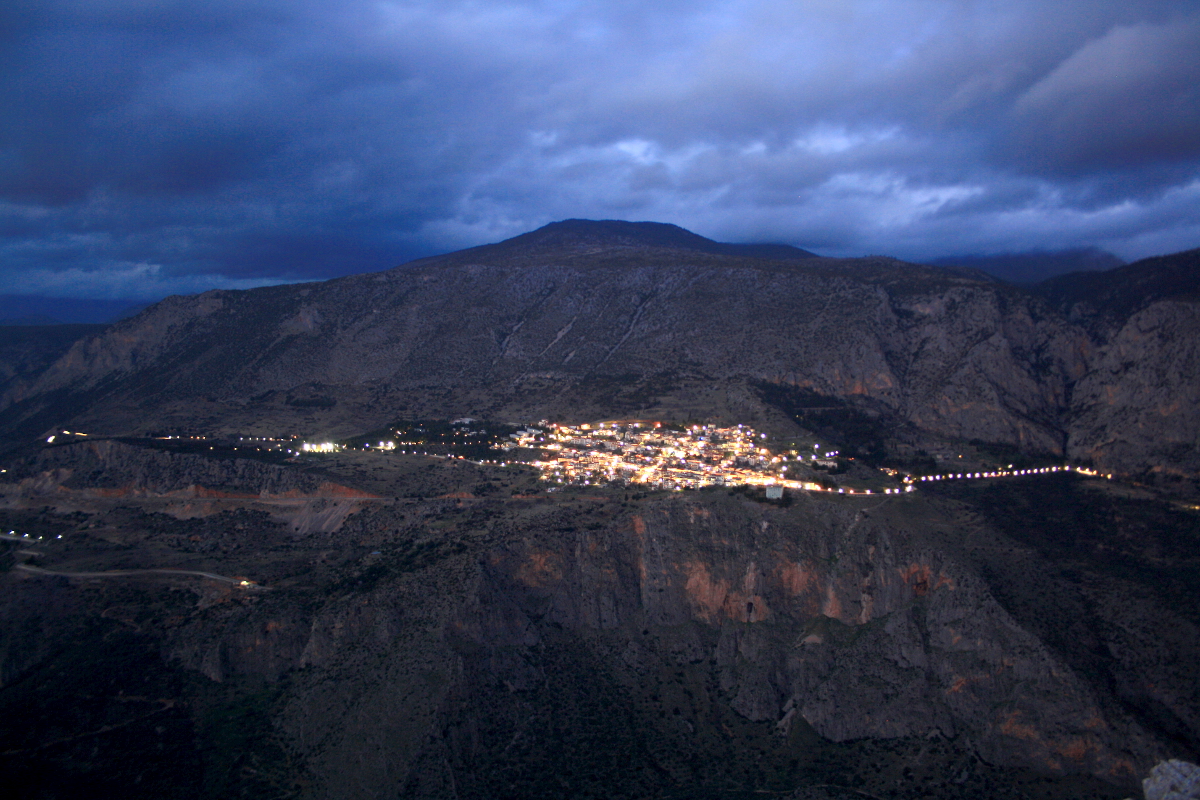In ancient Greek history and mythology, Delphi was referred to as the geographical center of the world, its navel. According to the ancient Greek myth, Zeus set two eagles free to find the center of the world. They soared through the skies westward and eastward and their paths crossed in Delphi.
From the 11th to 9th century B.C., the worship of Apollo was established in Delphi. According to the myth, Apollo took up residence there after he slew the dragon-like Python, which guarded the Earth goddess’s oracle. After his sublimation, Apollo returned to Delphi and established his worship at the oracle which exists in his honor to this day.
Apollo, the god of purification and divination, established the initial forms of his faith at Delphi. He taught people the importance of «measure» and became the most moral and peaceful expression of the Greek spirit and culture. At the renowned Oracle of Delphi, the Gods’ will was dictated through the Priestess Pythia.
During the 8th and 7th centuries B.C., the areas of the sacred precinct of Delphi were configured. Toward the end of the 7th century B.C., the first two stone temples were built, dedicated to Apollo and Athina. At the beginning of the 6th century B.C., Delphi joined the Amphictyony, a union of city-states with common political goals, which served to protect the temple from conquest.
In time, the Delphic Amphictyony attained jurisdiction over the temple of Apollo and in 528 B.C. once again organized the Pythian Games, which took place every four years in honor of Apollo, to commemorate the god’s victory against Python.
Through the Amphictyonic Council, Delphi communicated the ideals of friendship, brotherhood and peaceful coexistence of all people. These ideals have remained central to what is today referred to as the Delphic Ideal. From the 6th to the 4th century B.C., the sanctuary at Delphi thrived. The temple was decorated with offerings and dedications to Apollo from Greek cities and individuals. Pilgrims would arrive from all over the ancient world to ask for consultation and prophecy for important issues of state and for personal matters. The pilgrims would wash themselves clean at the Kastalia Spring, pay a kind of tax (the pelanon) and sacrifice an animal at the altar of Apollo.
Apollo’s prophecies were expressed by Pythia and then deciphered by Apollo’s priests. The ritual’s ceremony took its final form during the 6th century B.C. and remained intact until the time of Hadrian (2nd century B.C.). During the time of its prosperity, the Oracle at Delphi was not just a religious center. It also exerted political influence, and often played an important part in political developments in Greece.
During its long history the Oracle at Delphi has witnessed natural disasters from fire and rock-slides (of the Faidriade Stones) to hostile attacks and looting of its treasures. During the Hellenistic years, the political influence of the Oracle diminished. However, its grandeur and prestige remained almost intact long afterwards. Roman emperors and officers were at times supportive of the site’s upkeeping and at other times played a part in its decline. During the 2nd century A.D., one of the earliest Greek travel writers Pausanias visited Delphi and in his book «Focika» left an important detailed account of all the monuments he observed in the area as well as the myths attached to them.
As Christianity prevailed and idolatry was quashed, Delphi began to decline. The sanctuary was eventually abandoned. It is said that Pythia delivered her final prophecy to the emperor Julian the Apostate (361 – 363 A.D.) who had attempted to revive the Oracle.
Tell the emperor that my hall has fallen to the ground.
Phoibos no longer has his house,
nor his mantic bay,
nor his prophetic spring;
the water has dried up.
(source & copyright: learn more at theDelphiGuide.com)


